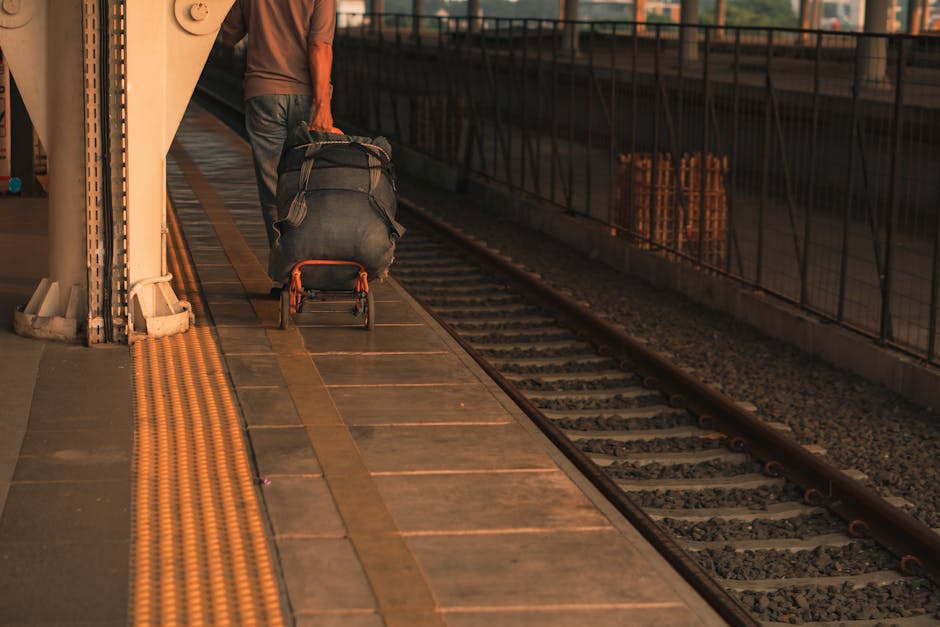
The Unseen Beauty in Getting Lost Abroad
Travel has long been a human pursuit, with people from all walks of life embarking on journeys to explore new lands, cultures, and experiences. We often plan our trips meticulously, booking flights, hotels, and tours in advance to ensure that every moment is accounted for. But what happens when we stray from the beaten path? When the GPS fails us, or we take a wrong turn down an unfamiliar alleyway? In those moments of uncertainty, something beautiful can unfold.
The idea of getting lost abroad can be daunting for some, especially those who are accustomed to control and predictability in their daily lives. Yet, it’s precisely this willingness to surrender to the unknown that allows us to stumble upon hidden gems, unexpected connections, and profound personal growth. In a world where tourism has become increasingly commercialized and standardized, embracing the art of getting lost can be a liberating experience.
Imagine wandering through a quaint Italian village, without a map or guidebook in hand. The narrow cobblestone streets, lined with ancient buildings and colorful boutiques, unfold like a treasure trove of surprises. You stumble upon a local market, where vendors offer you samples of their fresh produce and artisanal cheeses. The aroma of freshly baked bread wafts through the air, drawing you to a nearby bakery, where you strike up a conversation with the owner, a kind-hearted Italian nonna. These serendipitous encounters are the essence of traveling without an agenda.
The Freedom to Explore
One of the most appealing aspects of getting lost abroad is the freedom it allows us to explore and discover new places on our own terms. Without the constraints of a predetermined itinerary or schedule, we can meander through unfamiliar streets, taking in the sights, sounds, and smells that define each location. This approach encourages us to be more mindful and present in the moment, allowing us to connect with local cultures and people in a way that’s often impossible when following a scripted tour.
Consider the example of a traveler who finds themselves lost in Tokyo’s Shinjuku district. Instead of panicking or seeking assistance from a tourist information center, they decide to explore the surrounding streets on foot. As they wander, they stumble upon a small, family-owned restaurant, where they sample delicious Japanese cuisine and engage with the chef, learning about the local ingredients and cooking techniques that define this style of food.
This type of encounter is not only enriching for the traveler but also beneficial for the locals, who appreciate the attention and interest shown in their culture. By embracing the art of getting lost, we can create a more reciprocal relationship between tourists and locals, fostering greater understanding and appreciation on both sides.
The Joy of Disorientation
Getting lost abroad often involves experiencing disorientation, which can be uncomfortable at first but ultimately liberating. When we’re no longer in control of our surroundings, we’re forced to confront the unknown and find ways to navigate it. This process of disorientation can be likened to a form of meditation, where we quiet the mind and focus on the present moment.
Disorientation can also lead to a greater sense of self-awareness and introspection. As we stumble through unfamiliar streets and encounter unexpected situations, we’re compelled to rely on our own resources and instincts, tapping into our inner strength and resilience. This type of personal growth is often unforeseen and yet profoundly impactful, allowing us to return home with a newfound appreciation for ourselves and the world around us.
In this sense, getting lost abroad can be seen as a form of spiritual journeying, where we confront our fears, doubts, and insecurities in order to emerge stronger, wiser, and more compassionate individuals. By surrendering to the unknown, we create space for growth, learning, and transformation, which are essential components of any meaningful travel experience.
The Beauty of Detours
Traveling without an agenda often involves taking detours from our planned route, whether it’s due to a wrong turn or an unexpected opportunity. These detours can be some of the most memorable moments on our journey, as they allow us to stumble upon hidden treasures and unexpected connections.
Consider the example of a traveler who takes a detour from their planned itinerary in order to explore a lesser-known beachside town in Costa Rica. As they wander through the local streets, they stumble upon a small art studio, where they meet an artist who’s inspired by the vibrant colors and textures of the surrounding environment. The artist invites them to join a local art project, which involves creating murals with the community.
This type of detour can be transformative for both the traveler and the locals involved. By embracing the unexpected, we create opportunities for cross-cultural exchange, mutual understanding, and creative expression. These experiences not only enrich our own lives but also contribute to the cultural heritage and identity of the places we visit.
Conclusion
Getting lost abroad is an art that requires courage, openness, and a willingness to surrender to the unknown. By embracing this approach, we can discover hidden gems, unexpected connections, and profound personal growth. Whether it’s navigating unfamiliar streets, engaging with local cultures, or confronting our fears and insecurities, getting lost abroad offers us a unique opportunity for self-discovery and spiritual growth.
In an era where tourism has become increasingly commercialized and standardized, the art of getting lost can be a refreshing departure from the usual travel experience. By embracing the beauty of disorientation, detours, and uncertainty, we can create more meaningful connections with local cultures and people, fostering greater understanding and appreciation on both sides.
As we navigate the complexities of our own lives, traveling without an agenda offers us a unique chance to confront our fears, doubts, and insecurities in order to emerge stronger, wiser, and more compassionate individuals. By surrendering to the unknown, we create space for growth, learning, and transformation, which are essential components of any meaningful travel experience.





